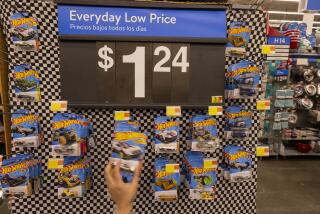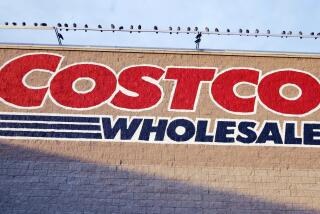Food Stamps Go Plastic in Pilot Project
WASHINGTON â The Department of Agriculture hopes to reduce food-stamp fraud by using electronic cards, similar to those used in automatic teller machines, to disburse several kinds of benefits to low-income households.
Since November, 1989, 4,700 families in Baltimore have been in a pilot program to see whether these cards deliver public assistance, child support and food-stamp payments more efficiently than paper vouchers.
A participant gets an âIndependence Cardâ and selects a personal identification number to go with it. The card can be used at any authorized grocery in the area by running the it and the number through a kind of mini-computer provided by the USDA. The machine verifies the card and electronically subtracts the purchase from the buyerâs account.
If the customer is entitled to other benefits--such as child support--that money also is available through the storeâs automatic teller machine.
So far, incidents of fraud have been minimal, officials said. USDA authorities said they believe such cards will prove to be less negotiable than paper food stamps, although users might attempt to sell the cards or barter with them. So far, USDA officials said, two people have been arrested and face state and federal charges for unauthorized use of the cards.
Statistics were not yet available to assess the success of the program, which is expected to cost $25.7 million over five years. Peg McNamara, who directs the pilot project for Marylandâs Department of Human Resources, said she believes it has been successful and already has eliminated weeks of labor-intensive paperwork chores, such as mailing tens of thousands of benefit notices to food-stamp recipients.
âWeâre getting a firm sense from the clients, the grocers and everyone involved that this is making people more responsible and more accountable,â McNamara said.
More to Read
Sign up for Essential California
The most important California stories and recommendations in your inbox every morning.
You may occasionally receive promotional content from the Los Angeles Times.










